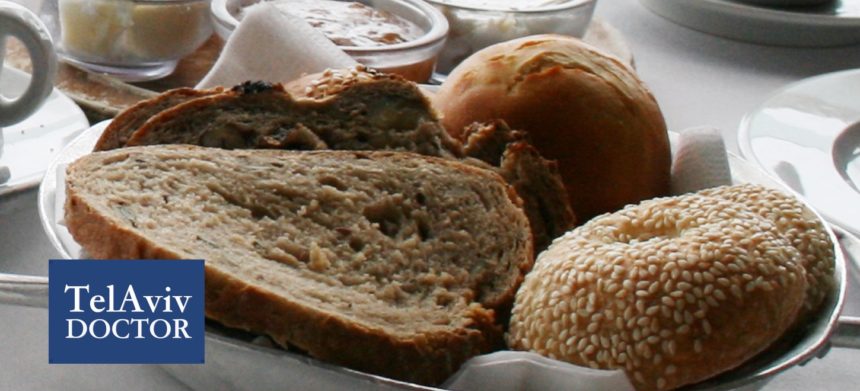If you have either a sesame or peanut allergy and you live in or travel in Israel, life can be tricky. Consumption of these products is very high, and a lot of the time they can be found in some not-so-obvious places.
Another difficulty is that, though not unique to Israel, there does seem to be a kind of ‘laissez-faire’ attitude to allergies here. Perhaps it is because more people are choosing to consciously eliminate foods from their diet because of ‘intolerances’ and so requests for avoiding something are almost the norm.
Maybe it’s because people just don’t appreciate how serious allergies can be. Whatever the reason, this relaxed attitude exists, and is dangerous.
Far too many times have there been reported deaths (worldwide) of people whom, after having asked if their food would contain nuts, have been falsely reassured. Or people have cracked open their bag of peanuts on an aeroplane when specifically asked not to by the crew because someone onboard had an allergy.
Some Foods to Avoid in Israel
It is difficult to give an exhaustive list of things to avoid eating while in Israel. Most people with an allergy will already be expert at knowing what to look for and who to ask, but in a country where things might be written or said in Hebrew, things can seem a lot more daunting.
With regards to sesame (‘tsum tsum’ in Hebrew), there are several common foods that contain sesame or might contain sesame. These are:
- Tahini/ tahina (sesame seed paste)- an off-white thin paste often served with falafel, schwarma and just about anything else. Hebrew: Arabic:
Hummus: usually contains tahini - Halva: a sweet made with sesame
- Za’atar: a green spice blend, often used to decorate hummus, breads or as a general garnish. You can usually see the sesame seeds
- Bread- a lot of breads, especially Challot, burger buns etc are garnished with sesame seeds
Foods to Avoid Potentially Containing Peanuts
Peanuts and other nuts are often found in a variety of places, both obvious and unsuspecting. Common culprits include:
- Salads
- Desserts such as Baklava (a form of pastry )
- Bamba- a peanut based snack
Further Advice on Allergies, Hebrew Phrases For Travellers
If you are unsure, using the phrase ‘alul le-ha-chil …..?’ (‘might contain….?’) can be used – or find somebody who can interpret for you. Alternatively you can ask for something without something on the side. My mother, on visiting Israel recently discovered that she didn’t like tahini, so got used to asking for things ‘blee tahina’- without tahina.
If you are in a restaurant, be aware that the waiting staff may not always be aware of what goes into the dishes. While they may be able to say that one thing should not contain nuts, they may not know that it is prepared right next to another dish which does contain them. For this reason speaking about possible cross-contamination to someone in the kitchen is usually worthwhile.
Some More Tips For Travelers With Allergies
- Some people find it useful to carry a card with these words on to show somebody when asking if they contain any allergens.
- Be aware that manufacturers are not required to list all allergens on their packaging. You may need to contact them directly.
- Ensure your medical insurance covers you should you require treatment.
- Consider a form of medical ID jewellery in case of emergency
- Ensure you have enough antihistamines, and if you have an anaphylactic response to an allergen, that you have at least TWO adrenaline auto-injectors with you at all times. The expiry date on these are usually short, so check these too.
Last But Not Least: Make Sure Your Friends And Family Know
One final thought. If you carry an adrenaline auto-injector, make sure you and those who spend the most time with you know how to use it correctly. It is the responsibility of your doctor, and to a certain degree yourselves, to ensure you know how to use the injection safely and effectively. This includes knowing when to administer it, where and how. You should have been shown how to use it, but if you are unsure, you must ask. Reading the information leaflet inside is a good refresher, but you ideally should be shown, preferably with a demonstration pen. An emergency situation is never the time to be learning something for the first time.
Read more in our recent post about Bamba and Peanut Allergy in Israel – What We (Don’t) Know >>



